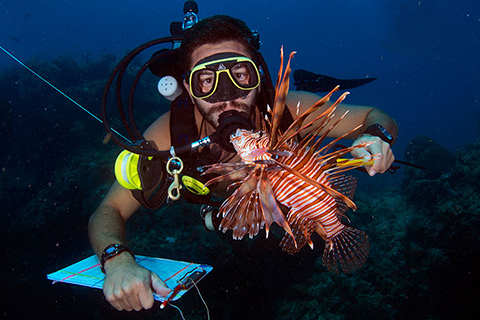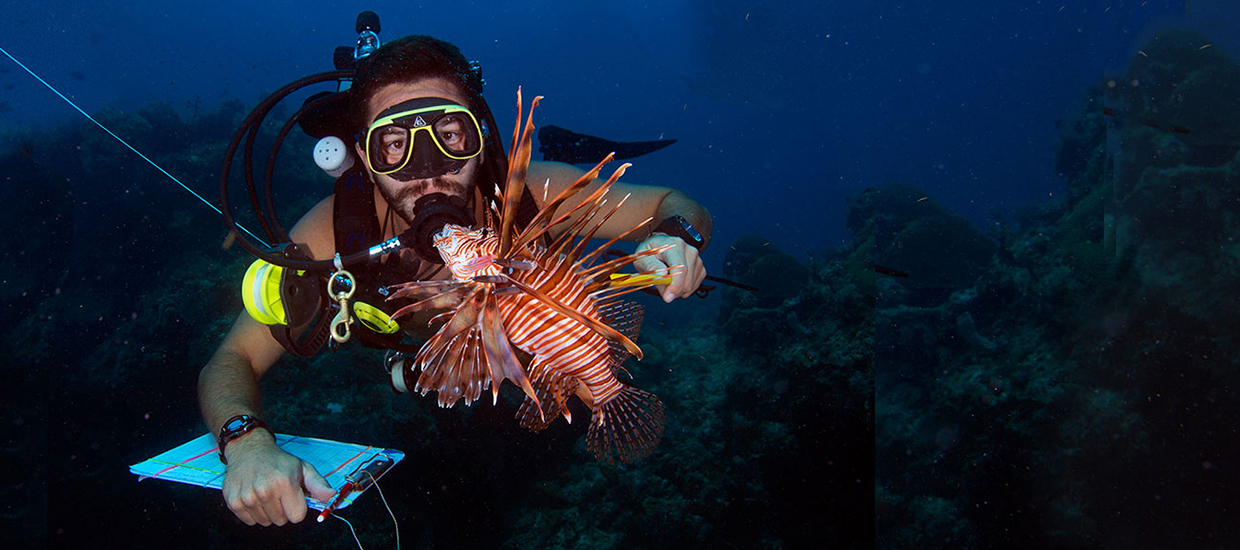Exploration Science is the applied practice and study of field research using a variety of methods, technologies, and approaches to drive question-based scientific endeavors. This field fosters scientific inquiry and the application of expedition skills within a context that acknowledges the cultural and ethical implications of exploration.
As scientific endeavors become more specialized, many projects require hundreds of hours of hands-on research. Exploration Science combines scientific research theory and field skills with an outreach and educational platform that allows the general public, young and old, to join University of Miami research scientists for experiential and virtual expeditions in ecological, oceanographic, aviation and diving research.
Utilizing new technologies to engage and educate the public, Exploration Science students will be involved in citizen science project design, exploration technology applications, and field-based skills training, while receiving essential background information on the history, ethics and risks related to exploration. Students will be able to tailor their degree to best fit their interests and goals and will be prepared to lead and conduct professional exploration initiatives and expeditions in a variety of environments.
This new track is being offered at the Rosenstiel School in partnership with UM's Abess Center for Ecosystem Science and Policy. The Abess Center fosters innovative, interdisciplinary initiatives that bridge the gap between science and environmental policy.
Exploration Science (ESC)
Exploration Science is the applied practice and study of field research using a variety of methods, technologies, and approaches to drive question-based scientific endeavors.
Program Requirements






